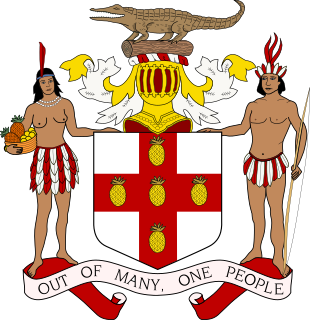 W
WRepublicanism in Australia is a movement to change Australia's system of government from a constitutional parliamentary monarchy to a republic, removing the power of the monarch of Australia. Republicanism was first espoused in Australia before Federation in 1901. After a period of decline after Federation, the movement again became prominent at the end of the 20th century after successive legal and socio-cultural changes loosened Australia's ties with the United Kingdom.
 W
WCanadian republicanism is a movement among Canadians for the replacement of the Canadian system of federal constitutional monarchy with a republican form of government. These beliefs are expressed either individually—usually in academic circles—or through the country's one republican lobby group. Republicans have no preferred model of republic, as individuals are driven by various factors, such as a perceived practicality of popular power being placed in the hands of an elected prime Minister or a different manifestation of the modern nation. As with its political counterpart, strong republicanism is not a prevalent element of contemporary Canadian society. The movement's roots precede Canadian Confederation and it has emerged from time to time in Canadian politics, but has not been a dominant force since the Rebellions of 1837, of which Canadian republicans consider their efforts to be a continuation.
 W
WRepublicanism in Jamaica is a position which advocates that Jamaica's system of government be changed from a constitutional monarchy to a republic. Both major political parties – the Jamaica Labour Party and the People's National Party – subscribe to the position, and the current Prime Minister of Jamaica, Andrew Holness, has announced that transitioning to a republic will be a priority of his government.
 W
WMorocco, currently a monarchy, has known some attempts to establish republican forms of government. Some of those attempts are continuing to this day:Morisco refugees from Andalusia formed in Salé and Rabat the Republic of Bou Regreg, a base for piracy (1627-1668). Berber rebels in the Rif Region first established the Rif Republic (1921-1926) under Abd el-Krim against Spanish colonial rule, the state lasted until 1925 when the rebels tried to take the city of Fes, in a failed attempt to expand the republic into French Morocco. In 1971 army cadets under General Madbouh and Colonel Ababuh attacked king Hassan II in the Shkirat palace. A republic was proclaimed on Radio Rabat, was but suppressed by General Mohamed Oufkir. However, in 1972 Oufkir initiated his own coup d'état; the Air Force tried multiple times to bring down the king's airplane, attacked the Rabat airport and bombed the royal palace in Rabat. The coup ultimately failed. During the 2011–2012 Moroccan protests, a few protesters chanted republican slogans. They were mainly from the Al Adl Wa Al Ihssane Islamist movement, the Ila al-Amam marxist group and some leftist streams. These slogans weren't repeated by the vast majority of the protesters.
 W
WRepublicanism in the Netherlands is a movement that strives to abolish the Dutch monarchy and replace it with a republic. The popularity of the organised republican movement that seeks to abolish the monarchy in its entirety has been suggested to be a minority among the people of the Netherlands, according to opinion polls. On the other hand, there has shown to be political and popular support in the Netherlands for reducing the political powers and the subsidies of the royal house.
 W
WRepublicanism in New Zealand is a political position that holds that New Zealand's system of government should be changed from a constitutional monarchy to a republic.
 W
WRepublicanism in Spain is a political position and movement that holds that Spain should be a republic.
 W
WRepublicanism in Sweden is the collective term for the movement in Sweden that seeks to establish a republic and abolish the Swedish constitutional monarchy.
 W
WRepublicanism in the United States is the use of the concept of republic, or the political ideals associated with it in the United States.